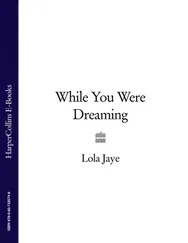Chinese people love to comment on the obvious, sometimes to the point of insensitivity or what we might even consider outright cruelty. Chinese sports commentators often say things like “Wow, he’s gained a lot of weight!” about athletes on the field. I have a “big-boned” older cousin whom, for as far back as I can remember, we have always called 胖姐姐 pàng jiějie (pahng jyih jyih), which literally means “fat sister.” Westerners in China were once referred to as Big Nose. President Obama is often referred to as 黑人 hēirén ( hay ren ), or “the black guy.” My bearded friend Jason is referred to as Big Beard. My mother is called the Mandarin equivalent of American Auntie, her older sister is Eldest Aunt, and my father is Old Man. It’s as if every Chinese person is somehow living in gangland Chicago or some imaginary criminal underworld in which everyone needs a self-descriptive nickname to make it easier for the FBI to identify them. Indeed, the most notorious gang boss in Chinese history was “Big-Eared” Du, and his mentor was “Pockmarked” Huang.
And as if that wasn’t bad enough, Chinese people, perhaps as a result of their collective thick skin, tend to demonstrate affection by being mean. Or rather, they speak frankly to each other in a way that, for them, indicates a level of familiarity that only a close relationship can have. But, to outside observers, it resembles, at best, a sort of constant, low-level stream of verbal abuse. For a young Chinese woman, there is no better way to express love for her boyfriend than by whacking him with her purse while telling him he’s horrible. Groups of friends incessantly interrupt each other with cries of “Nonsense!” or “Shut up!” A good way to greet a pal is to give him a pained look and ask what the hell he did to his hair. I myself have had many an otherwise peaceful afternoon spent curled up on an armchair, happily reading a book, when I’ve been suddenly interrupted by a passing aunt or some other stray family member who snuck up behind me, smacked me across the back, and bellowed, “哎呀!, 蠢! ” “iyā! Yòu féi, yòu chǔn!” ( aye yah! yo fay, yo chren! ): “My God! So fat and lazy!”
The Chinese word for “scold” or “verbally abuse” is 骂 mà ( mah ). Note those two squares at the top of the character-they represent two mouths, no doubt heaping abuse on the nearest person available. This chapter gathers words for the age-old art of 骂人 màrén ( mah ren ) or “scolding people,” including everyday exclamations of annoyance and frustration, teasing put-downs and dismissals, words for affectionate name-calling, everyday insults, and everything else you’ll need to generally convey to the most important people in your life that their very existence on this earth is a constant and overwhelming burden.
And finally, the Chinese may have a healthy sense of humor when it comes to the slings and arrows of everyday life, but they can also hold a grudge, and so at the end of the chapter you’ll find words to fuel the fire when things cross the line into full-on feuding-genuinely venomous insults with the power to end decades-long friendships, provoke fistfights, and possibly get you disowned.
Everyday exclamations
哎呀 àiya ( aye yah)
A common interjection that can be used for a wide range of occasions: when you’ve forgotten something, when you’re impatient, when you’re bored, when you feel helpless, as a lead-in to scolding someone, etc. It isn’t exactly a word-more like a weighty sigh and roughly equivalent to “Oh Lord!” or “My God!”
糟了 zāole ( dzow luh -the starting sound in dzow is like a buzzing bzz sound but with a d instead of a b , and the whole syllable should rhyme with “cow”)
A very common expression of dismay. Literally “rotten” or “spoiled” and something like saying, “Oh shoot!” “Darn!” or “Crap!” You can also say 糟糕 zāogāo ( dzow gaow -both syllables rhyme with “cow”), which literally means “rotten cakes,” but it’s less current.
完了 wánle ( wahn luh)
Same meaning as zāole (above). It’s pretty much like exclaiming “Crap!” to yourself. Literally, it means “over.”
老天爷 lǎotiānyé ( laow tyinn yeh)
Literally “my father God” and sometimes 我的天 wǒdetiān ( wuh duh tyinn ), literally “my heavens.” Equivalent to exclaiming “My God!” or “Oh goodness!” These phrasings are more common among older people; younger people usually shorten them to 天哪 tiānnǎ ( tyinn nah ) or simply 天 tiān ( tyinn ): “Oh heavens!” or “Heavens!”
哇塞 wā sài ( wah sigh)
Shoot! Darn! Oh my God! Wow! Holy cow! An exclamation especially popular among girls. Comes from a Taiwanese curse that means “Fuck your mother” (but is a shortened and nonprofane version of it).
该死的 gāisǐde ( guy sih duh)
My God! Holy crap! Literally “should die.”
气死我了 qìsǐwǒle ( chee sih wuh luh)
Argh! Damn it! Crap! Literally, “I’m angry to the point of death.”
可恶 kěwù ( kuh woo)
Literally “hateful” and said alone means something like “Darn!”
傻眼 shǎyǎn ( shah yen)
Oh no! Said in response to surprising, negative situations. For example, if you discover that your house has been broken into. Literally “dumbfounded eye.”
晕 yūn ( een)
Means “dizzy” or “faint” and is often uttered to express surprise, shock, amusement, or even confusion or disgust; that is, emotions that might make you feel faint.
倒霉 dǎoméi ( dow may)
Bad luck. You can say this when something unfortunate happens. This sentiment can be made slightly stronger by saying 真倒霉 zhēn dǎoméi ( jen dow may ), which means “really bad luck.”
点儿背 diǎnr bēi ( dyerr bay)
Beijing /northern Chinese slang for dǎoméi(above), used the same way. Literally “fate turns its back on you.” 点儿 Diǎnr is northern Chinese slang for “luck” or “fate,” and 背 bēi means “back.”
残念 cánniàn ( tsahn nyinn)
Bummer, too bad. Popular among young people to express disappointment. Derived from the Japanese phrase zannen desu, which sounds similar and means something like “what a shame” or “that’s too bad.”
郁闷 yùmēn ( ee men)
A popular term among young people, it means “depressed” but is used as an adjective for a much larger range of situations-when they feel pissed off, upset, disappointed, or even just bored. Exclaimed alone, one would say, “郁闷啊…” “ Yùmēn ā…” (ee men ah), meaning “I’m depressed…” or “Sigh…”
Dismissals and shutdowns
没劲 méijìn ( may jeen)
Literally “no strength.” Said dismissively of things you find uninteresting or stupid, much like saying “whatever.” A stronger way to say this is 真没劲 zhēn méijìn ( jen may jeen ), literally “really no strength.”
无聊 wúliáo ( ooh lyow)
Nonsense, bored, boring. A common expression if you’re bored is 无聊死了 wúliáo sǐ le (ooh lyow sih luh), literally “bored to death.” You can also say wúliáoin response to something you find stupid or uninteresting; for example, in response to an unfunny joke.
服了 fú le ( foo luh) or 服了你了 fúle nǐ le ( foo luh nee luh)
Literally means “admire you” and sometimes said genuinely in response to something awe inspiring, but more usually said mockingly when someone says or does something silly or stupid. A more common form among younger people is “I 服了 U!” or “I fú leyou,” literally “I admire you,” from a 1994 Stephen Chow movie.
Читать дальше










